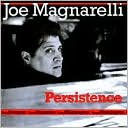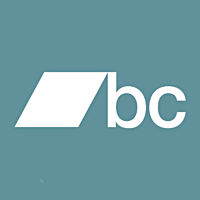Home » Jazz Articles » Joe Magnarelli
Jazz Articles about Joe Magnarelli
Joe Magnarelli's Trumpet Jams

by Jim Santella
Marcus Printup, Ryan Kisor & Joe Magnarelli Jam Session, Vol. 25 SteepleChase 2008 Gratitude SteepleChase 2008 The Marty Sheller Ensemble Why Deny PVR Records 2008 A veteran of the Big Apple jazz scene for 23 years, trumpeter Joe Magnarelli brings a clear tone, crisp articulation and fiery imagination to these sessions. On Jam Session Vol. 25, Magnarelli teams with ...
Continue ReadingJoe Magnarelli: Persistence

by Nicholas F. Mondello
Joe Magnarelli Persistence Reservoir Music 2008
The stark black and white cover photo of trumpeter Joe Magnarelli peering out at you from the cover of Persistence emits a brooding and a blandness that is light years away from the robust, enjoyable musical experience offered by the music on the disc itself.
Magnarelli, a first-call trumpeter among first-callers, leads an exciting group of other New York musicians (stars ...
Continue ReadingJoe Magnarelli: Hoop Dreams

by David A. Orthmann
Over the past dozen years trumpeter Joe Magnarelli has gradually transformed a bebop-derived vocabulary into a highly personal style. Utilizing a full-bodied tone that never turns strident, Magnarelli invites the listener to focus on the substantive dimensions of his playing, rather than drawing attention to technique, velocity and influences. Beautifully crafted melodies spring from his horn in varying shapes and sizes. Sometimes he'll sustain a chain of thought for several measures; in other instances he'll parcel out a complete idea ...
Continue ReadingMike Holober and the Gotham Jazz Orchestra: Thought Trains

by Robert R. Calder
Mike Holober's not just another pianist working within long-established post-Bill Evans methods, he's one of the rare very individually creative ones. Given his more monumental approach, his Gotham Jazz Orchestra can seem something of an extension of his piano work. His orchestration sometimes fills out a piano conception, sometimes interacts with his playing, piano concerto fashion. A band member's solo will sometimes have the full orchestra, sometimes the at times equally full-sounding rhythm section, in accompaniment. Planned and grand. With ...
Continue ReadingJoe Magnarelli/John Swana: New York-Philly Junction

by Russ Musto
This encore date by the two-trumpet team of Joe Magnarelli and John Swana is (like their first meeting) more collaborative in nature than competitive, and the results are similarly satisfying. Beginning with the title track, a co-written composition from the pair, the twosome show that they would rather work together than try to cut one another. With Eric Alexander's tough tenor filling out the front line and Joel Weiskopf, Peter Washington and Kenny Washington in the rhythm section, the sextet ...
Continue ReadingMike Holober and the Gotham Jazz Orchestra: Thought Trains

by John Kelman
Originally recorded in '96, years before Mike Holober's début small group recording Canyon (Sons of Sound, '03), Thought Trains is only now seeing the light of day, but it continues to assert the pianist/composer/arranger as a dominant new force on the New York scene. And while the larger ensemble context of Thought Trains limits the amount of spontaneous interplay that was prevalent on Canyon , it makes up for that kind of unrestrained exploration with sharp arrangements that make full ...
Continue ReadingMike Holober and the Gotham Jazz Orchestra: Thought Trains

by Dan McClenaghan
There's something about trains, the metronomic, ringing clink-clack of metal wheels on metal track, the fanfare of the whistle, the rhythm and rumble of the coaches being propelled across a countryside. Duke Ellington loved trains, in a day when he and the band used the form of transportion to get from gig to gig. Think of “Take the A Train" and “Track 360." Pianist/arranger/composer Mike Holober loves trains, too, as his second outing as leader attests--the big band set Thought ...
Continue Reading


















